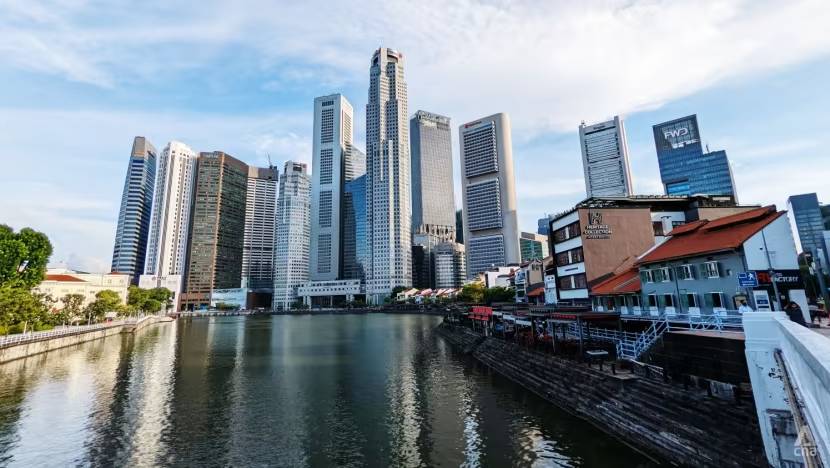Singapore economy grew 3.8% in 2022, slower than 7.6% growth in 2021: MTI advance data
03 January, 2023

Singapore’s economy grew 3.8 per cent for the whole of 2022, slowing from the 7.6 per cent growth in the year before, according to advance estimates released by the Ministry of Trade and Industry (MTI) on Tuesday (Jan 3).
This is slightly above official expectations for the country’s gross domestic product (GDP) in 2022 to come in at “around 3.5 per cent”.
For the final quarter of the year, the economy expanded by 2.2 per cent on a year-on-year basis, moderating from the 4.2 per cent growth in the third quarter.
On a quarter-on-quarter seasonally adjusted basis, the economy grew 0.2 per cent in the fourth quarter, also slowing from the 1.1 per cent expansion in the earlier quarter, MTI’s data showed.
All sectors, except manufacturing, grew on a year-on-year basis in the fourth quarter.
The manufacturing sector, which accounts for about one-fifth of the economy, contracted by 3 per cent year-on-year in the fourth quarter, a reversal from the 1.4 per cent growth in the previous three months. This is due to output contractions in the electronics, chemicals and biomedical manufacturing clusters, which outweighed output growth in the other clusters such as precision engineering and transport engineering, MTI said.
Construction grew by 10.4 per cent year-on-year in the fourth quarter, accelerating from the 7.8 per cent growth in the previous quarter, as both public and private sector construction output continued to recover.
However, the value-added of the construction sector in absolute terms remained at 19.3 per cent below its pre-pandemic level, said the ministry.
Among the services sectors, the wholesale and retail trade and transportation and storage sectors collectively grew by 2.3 per cent year-on-year in the fourth quarter, slower than the 5.7 per cent growth in the previous quarter.
The group of sectors comprising the information and communications, finance and insurance and professional services sectors grew by 2.9 per cent year-on-year in the fourth quarter, extending the 3.6 per cent growth in the previous quarter.
The remaining group of services sectors – accommodation and food services, real estate, administrative & support services and other services sectors – grew by 8.2 per cent year-on-year in the fourth quarter, extending the 9.3 per cent growth in the previous quarter.
The advance GDP estimates are computed largely from data gathered in the first two months of the quarter.
They are intended as an early indication of GDP growth in the quarter and are subject to revision when more comprehensive data become available, MTI said.
The ministry will release the preliminary GDP estimates for the fourth quarter and whole of 2022 in February.
“Economic growth slowed sharply during the first two months of the fourth quarter and we think a further slowdown is likely over the coming quarters,” said Capital Economics’ economist for emerging Asia Shivaan Tandon.
Exports are set to fall further if the global economy enters a recession in 2023. In addition, elevated interest rates, declining household savings and high inflation will likely be a drag on domestic demand, he added.
With that, the Singapore economy is expected to “slow to a below trend and below consensus 1 per cent” in 2023. Amid slower growth and expectations for inflation to ease, further monetary tightening from the Monetary Authority of Singapore will be unlikely, said Mr Tandon.
For the year ahead, MTI has said it expects slower growth of between 0.5 per cent and 2.5 per cent.
In his New Year message, Prime Minister Lee Hsien Loong said that Singapore must brace for uncertainties ahead as the international outlook “remains troubled”.
Apart from the continuing Russia-Ukraine war and US-China tensions, Mr Lee said: “How quickly China recovers from COVID-19 remains to be seen, while the US and EU may well enter recession.”
“Our economy will be affected … We must brace ourselves for the uncertainties ahead.”
Useful Links:
Source: www.channelnewsasia.com
